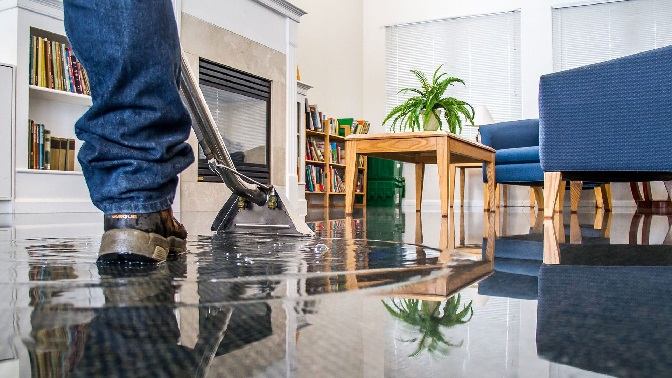Water damage can wreak havoc on homes and businesses, posing significant risks to both property and health. In Boise, where environmental factors like heavy rainfall and snowmelt are common, comprehensive water damage restoration services in Boise are essential for mitigating these risks and restoring peace of mind to affected individuals. Understanding the science behind water damage restoration is crucial in effectively addressing this issue.
Understanding Water Damage
Water damage can stem from various sources, including burst pipes, leaky roofs, flooding, or appliance malfunctions. These incidents can result in different types of water damage, such as clean water damage from broken pipes, gray water damage from appliances, or black water damage from sewage backups. The effects of water damage extend beyond visible property damage, often leading to mold growth and compromising indoor air quality, which can pose health risks to occupants.
Water infiltration into building materials and structural components can weaken their integrity, leading to structural damage over time. Additionally, prolonged exposure to moisture can promote microbial growth, including mold, bacteria, and fungi, which can exacerbate health issues such as allergies, respiratory infections, and asthma.
The Process of Water Damage Restoration
Comprehensive water damage restoration involves a systematic approach to mitigate damage and restore affected areas to their pre-loss condition. The process typically begins with a thorough assessment and inspection to determine the extent of the damage and formulate an appropriate restoration plan. Trained technicians evaluate the affected areas, identify the source of water intrusion, and assess the extent of moisture penetration into building materials. Water extraction and drying follow, using specialized equipment like industrial-grade dehumidifiers and air movers to remove excess moisture effectively. High-powered vacuums and pumps are employed to extract standing water from floors, carpets, and other surfaces. Then, air movers and dehumidifiers are strategically placed to facilitate evaporation and humidity control, accelerating the drying process.
Cleaning and sanitizing are then performed to eliminate any contaminants and inhibit microbial growth. Non-porous surfaces are cleaned with antimicrobial agents to disinfect and prevent the spread of bacteria and mold spores. Porous materials may undergo more extensive cleaning or removal, depending on the severity of contamination. Once the affected areas are thoroughly dried and cleaned, restoration and repairs can begin. This may involve repairing structural damage, replacing damaged materials, and restoring the aesthetics of the property to its pre-loss condition. Professional restoration technicians work efficiently to minimize downtime and disruptions, allowing occupants to return to their normal routine as soon as possible.
Advanced Techniques and Technologies
Advancements in technology have revolutionized the field of water damage restoration, enabling professionals to employ advanced techniques and tools for more efficient and effective restoration. Moisture detection tools, such as infrared cameras and hygrometers, allow technicians to identify hidden moisture pockets and ensure thorough drying. These tools enable technicians to accurately assess the extent of water damage and monitor the drying process in real-time, ensuring that all affected areas are properly addressed.
Industrial-grade dehumidifiers and air movers facilitate rapid drying by circulating dry air and extracting moisture from building materials. These high-capacity machines are capable of removing large volumes of moisture from the air and materials, expediting the drying process and minimizing the risk of secondary damage. Thermal imaging cameras help detect water intrusion behind walls or ceilings, guiding targeted restoration efforts. By identifying areas of hidden moisture, technicians can focus their efforts on drying and restoring these areas, preventing mold growth and structural damage.
Importance of Professional Water Damage Restoration Services
While DIY attempts to mitigate water damage may seem tempting, professional water damage restoration services offer numerous benefits that outweigh the initial cost. Trained technicians possess the expertise and experience to handle water damage incidents of varying complexity, ensuring thorough and efficient restoration. They are equipped with the necessary tools and equipment to safely and effectively mitigate water damage, minimizing the risk of further damage to the property.
Moreover, professionals prioritize safety and health considerations, employing appropriate protective gear and following industry best practices to minimize risks to occupants. They are trained to identify and address potential hazards, such as electrical hazards, structural instability, and microbial contamination, ensuring a safe and healthy environment for occupants. By addressing water damage promptly and comprehensively, professional restoration services help prevent secondary damage, such as mold growth and structural deterioration, saving both time and money in the long run. They work quickly and efficiently to minimize downtime and disruptions, allowing occupants to return to their normal routine as soon as possible.
Conclusion
Mitigating water damage risks demands a holistic approach, amalgamating scientific principles, advanced tech, and professional skills. By grasping water damage restoration science and opting for professional services, one can mitigate risks, restore peace of mind, and safeguard property against future incidents. In Boise, comprehensive water damage restoration services offer homeowners and businesses assurance, enabling them to concentrate on recovery and restoration, knowing their property is in competent hands.
